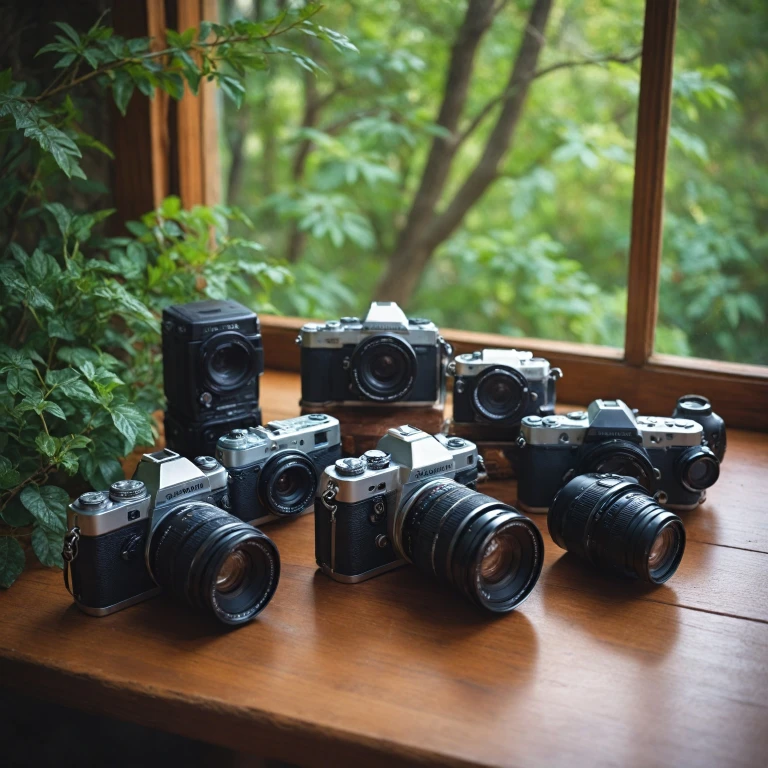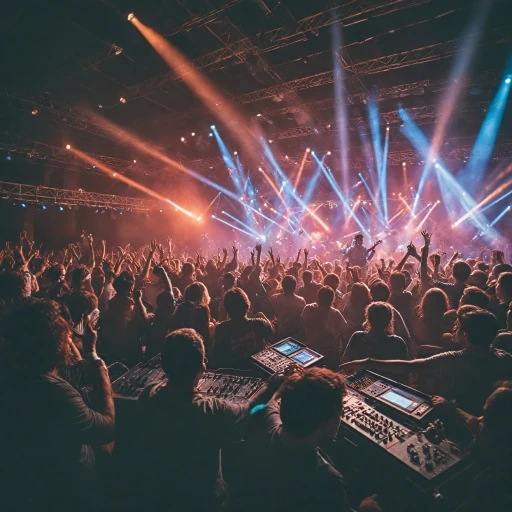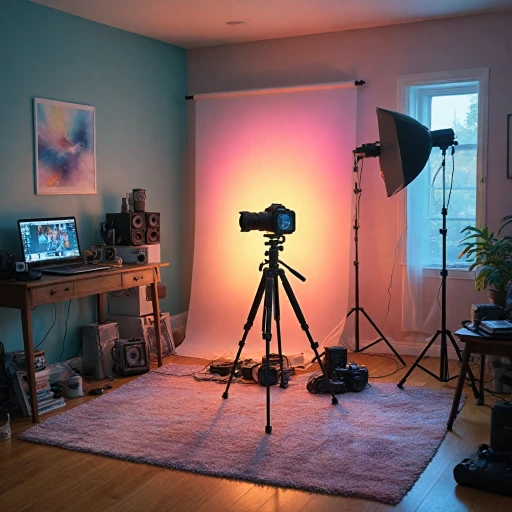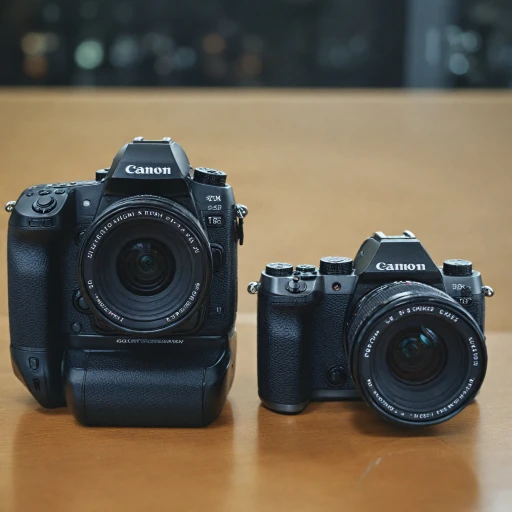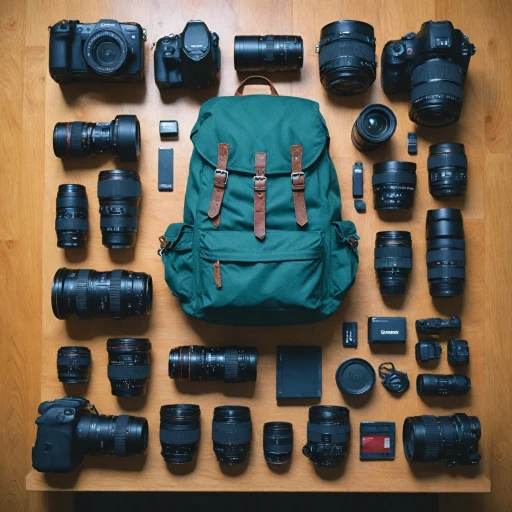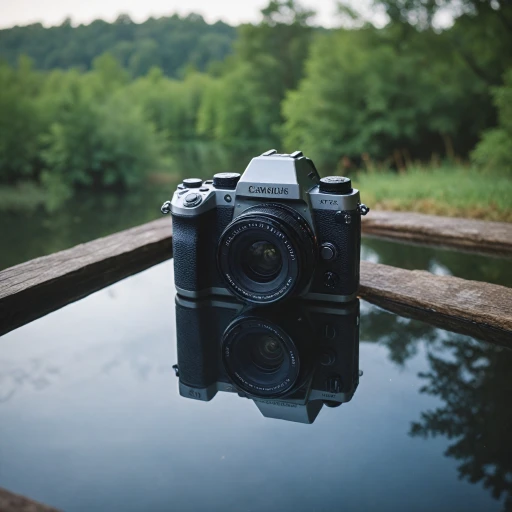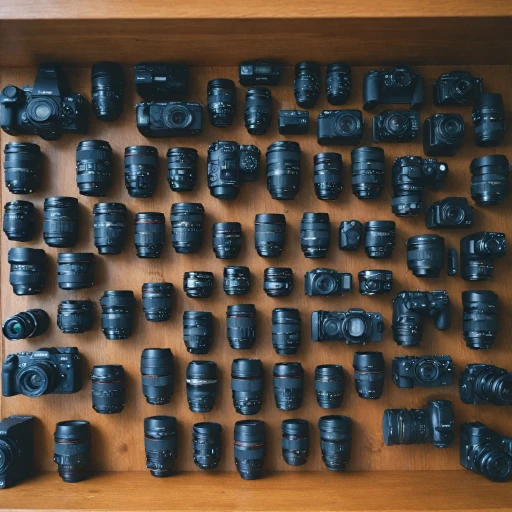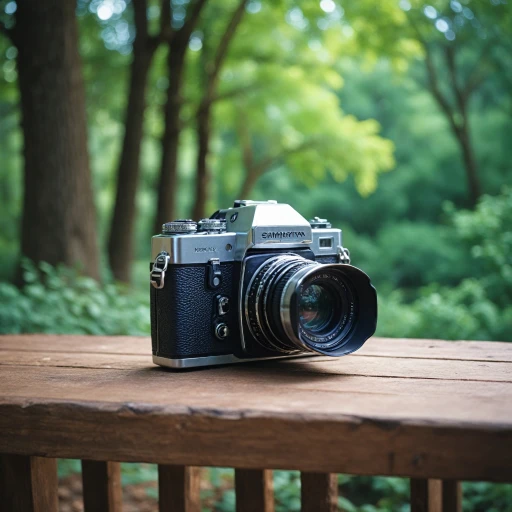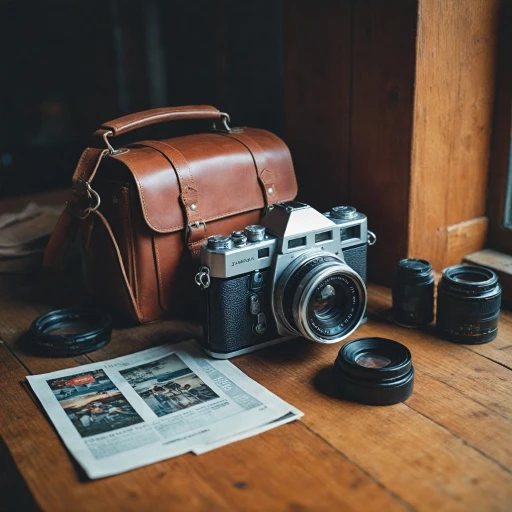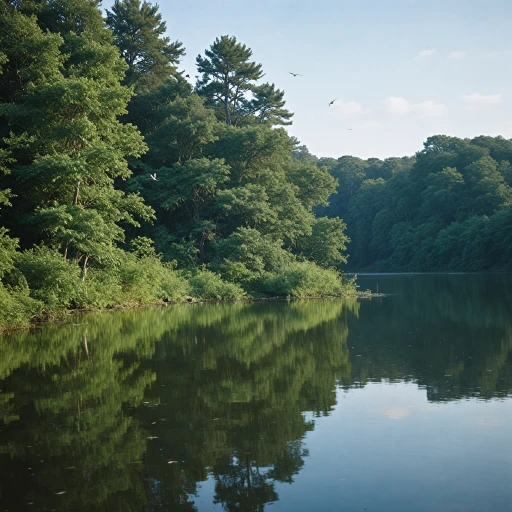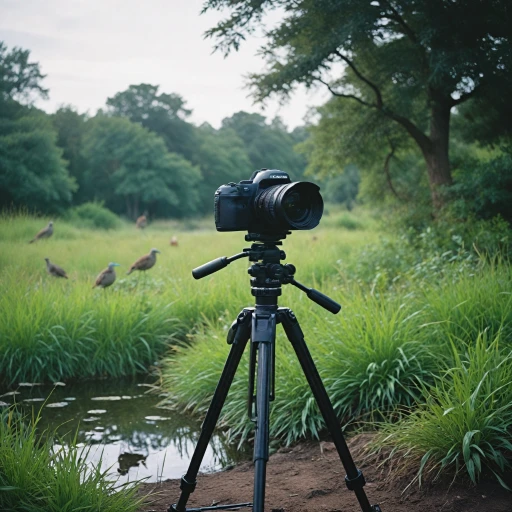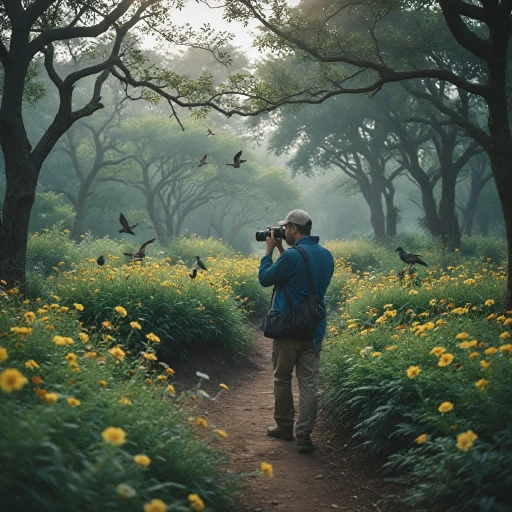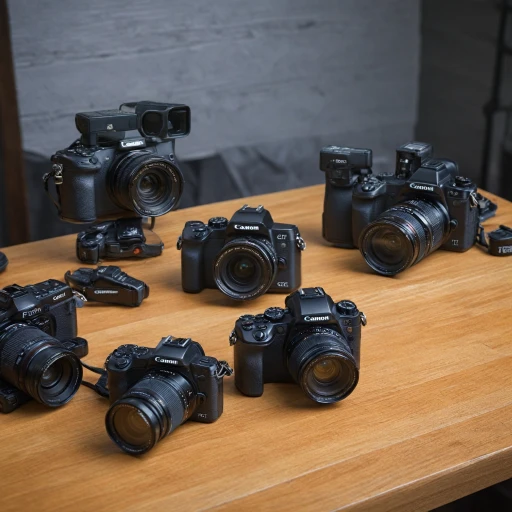
Understanding Your Photography Needs
Evaluating Your Photography Aspirations
When diving into the world of photography, it's crucial to first identify what you wish to achieve with your camera. Understanding your photography needs will set the foundation for selecting a beginner camera that not only aligns with your goals but also enhances your learning experience. Are you interested in capturing stunning landscapes or focusing on portrait photography? Perhaps your passion lies in creating engaging video content or mastering the art of still life photos. Each of these aspirations influences the type of digital camera that will best suit your beginning journey.
Defining Your Specific Interests
Consider your primary interest in photography. If you're inclined towards travel or street photography, a compact and lightweight point-and-shoot camera might be a suitable choice. On the other hand, for those leaning toward portrait photography, a camera with a high-quality lens and substantial sensor size, such as a mirrorless camera, can provide exceptional image quality. Mirrorless cameras are often favored by beginners due to their portability and advanced features that grow with you.
Exploring the Advantages of Different Camera Types
Reflecting on how and where you'll use the camera can guide you towards picking the right model. Do you need a camera that excels in low-light situations? A larger sensor, such as a full frame, found in some mirrorless and DSLR cameras, will be beneficial. Or perhaps you value the convenience of a versatile camera body for day-to-day shoots, which could make a hybrid camera a perfect choice for capturing both images and video effortlessly. For a broader understanding of how different camera types cater to various photography genres, you might want to explore modern takes on classic photography.
Balancing Functionality with Practicality
While determining your photography ambitions, balance is key. You need a camera that isn't just about the specs but also about how physically comfortable and intuitive it is to use. Look for features like built-in guides, touch interfaces, or user-friendly controls that cater well to camera beginners. Models like the Canon EOS Rebel series offer a great balance between ease of use and powerful functionality. These considerations ensure your chosen camera is delightful to use while helping you swiftly achieve your photography objectives.
Types of Digital Cameras for Beginners
Exploring the Various Types of Beginner Cameras
Embarking on your journey into the world of photography, it is crucial to familiarize yourself with the different types of digital cameras available. As a beginner, understanding the distinctions between camera categories will help you make an informed decision. While there are numerous models to choose from, the three main types of cameras for beginners include DSLR, mirrorless, and point-and-shoot.
DSLR Cameras
Digital Single-Lens Reflex (DSLR) cameras have long been popular among beginners and professionals alike due to their versatility and robust image quality. These cameras utilize a mirror mechanism that allows you to view through the lens directly. While DSLRs like the Canon EOS Rebel series are often larger and heavier compared to other types, they provide a wide range of interchangeable lens options, giving you the flexibility to capture various scenes perfectly. Moreover, DSLRs typically come equipped with larger sensors, which enhance image quality even in low light conditions.
Mirrorless Cameras
Mirrorless cameras are increasingly gaining popularity, especially among content creators who value compactness without sacrificing performance. Unlike DSLRs, these cameras do not have a mirror mechanism, which results in a more compact camera body. Mirrorless models like Fujifilm and Canon EOS options offer great image quality, swift autofocusing, and the advantage of in-body image stabilization. This type of digital camera is perfect for individuals looking to blend quality photography with convenience, especially those interested in video recording due to their superior video capabilities.
Point-and-Shoot Cameras
For individuals who prioritize simplicity, point-and-shoot cameras prove to be an excellent choice. These cameras feature a fixed lens that simplifies the photography process, making them ideal for absolute beginners. Though generally offering lower image quality compared to DSLR and mirrorless cameras, point-and-shoots still provide satisfactory results for casual photography, with some high-end models equipped with powerful sensors and zoom capabilities.
Each camera type brings unique characteristics to the table, catering to various tastes and photography needs. A key consideration in choosing your beginner camera is determining how you plan to use it and what features you prioritize, such as portability, technical complexity, or image quality. For more insight into the world of high-end cameras and their features, you might find it interesting to explore the pinnacle of the most expensive cameras on the market, where you can understand what advanced technology has to offer, even if suited for future exploration.
Key Features to Look for in a Starter Camera
Essential Features Every Beginner Should Consider
When purchasing your first digital camera, it’s crucial to understand the features that could enhance your photography without overwhelming you. Not all cameras are built the same, and choosing a model that aligns with your goals will make your journey into photography more enjoyable.Sensor Size and Image Quality
A camera's sensor plays a pivotal role in determining image quality. Cameras with larger sensors, such as full frame or APS-C, often deliver superior image quality, which is particularly beneficial for capturing intricate details and achieving a shallower depth of field. While full frame sensors are a great option, they can be pricier; hence, some beginners might opt for APS-C sensors or even the Micro Four Thirds for a balance between quality and cost.Interchangeable Lenses Versus Fixed Lens
Beginners should consider whether they prefer the flexibility of interchangeable lenses or the convenience of a fixed lens system. Mirrorless cameras and DSLRs allow you to swap lenses, providing versatility and room for growth in your photography skills. Meanwhile, point-and-shoot cameras or models like the Fujifilm X100 series come with fixed lenses, which simplify the shooting process and often lead to a more compact and portable design.Ease of Use and Control Layout
Navigating through your camera’s settings should be intuitive. Many beginner cameras come with user-friendly controls and guides, giving you step-by-step help. For instance, the Canon EOS Rebel series is known for its ergonomic design and guided mode, making it a popular choice among first-time users. Whether you choose a Canon, Fujifilm, or another brand, make sure the camera’s layout feels comfortable and learning isn’t a daunting task.Autofocus System Performance
Capturing the perfect shot can often be a matter of milliseconds, so a fast and reliable autofocus system is key. For beginners, cameras with excellent autofocus capabilities can make a huge difference in photography. Look for systems that perform well in low-light conditions and offer features like face and eye detection, which are invaluable for portrait and action photography.Built-in Features for Added Versatility
Digital cameras often include built-in features that add versatility to your shooting experience. From built-in Wi-Fi for instant sharing to 4K video capabilities and in-camera editing tools, these features can cater to a range of needs, expanding what you can achieve directly from your camera. Selecting the right digital camera involves more than just checking product reviews. It's about finding the right balance between features, ease of use, and long-term satisfaction. For enthusiasts looking for more comprehensive guides, discover perfect presents for photography enthusiasts to find a camera that suits your creative aspirations.Budget Considerations and Value for Money
Financial Planning for Your First Camera Purchase
When embarking on your journey into the world of photography, budget considerations play a crucial role in determining which beginner camera is the best fit for your needs. Balancing quality and affordability ensures you make a wise investment without breaking the bank.- Budget Range: Establishing a budget before diving into the world of digital cameras can help you narrow down your options. Generally, beginner cameras range from $300 to $1000, with options for both point-and-shoot and entry-level mirrorless cameras.
- Value for Money: Look for cameras that offer the best value in terms of features like image quality, sensor size, and video capabilities. A camera that supports interchangeable lenses, like the Canon EOS or Fujifilm options, can provide more versatility as you advance in your photography skills.
- Beyond the Camera Body: Remember that additional costs may arise. Factor in expenses for lenses, memory cards, and other accessories that are essential for a complete photography experience.
- Reviews and Recommendations: Look into reviews for top beginner cameras. Brands like Canon and Fujifilm often receive high praise for their balance of quality and user-friendly interfaces. Popular models in the beginner range include the Canon EOS Rebel series, known for its excellent image quality and ease of use.
- Long-term Investment: While it might be tempting to go for the latest camera models, consider how the camera fits into your long-term photography plans. A slightly older model with great reviews can sometimes offer better value and reliability than a brand-new camera.
Top Recommended Cameras for Beginners
Top Picks for Photography Beginners
Choosing a camera when you're just starting out in photography can be overwhelming. There is a wide range of options, from point-and-shoot cameras to mirrorless cameras. Here, we highlight some top recommended cameras that offer the best bang for your buck, factoring in the various features and price points discussed previously.
- Canon EOS Rebel T7 - The Canon EOS Rebel T7 is an excellent beginner option, boasting a user-friendly interface and a 24.1 MP sensor that delivers good image quality. The Canon EOS line is praised for its reliability and ease of use, particularly for new photographers.
- Sony Alpha a6000 - As a popular choice among mirrorless cameras, the Sony Alpha a6000 offers superior auto focus and burst shooting capabilities, making it ideal for both photography and video content creation. Despite being a more advanced model, its price is surprisingly friendly for beginners.
- Nikon D3500 - This DSLR is great for those who prefer a classic camera feel. The Nikon D3500 offers outstanding image quality with its APS-C sensor and built-in tutorials to help beginners get started.
- Fujifilm X-T200 - Known for its beautiful design and excellent image quality, the Fujifilm X-T200 features a versatile tilting touchscreen and a range of advanced video features that make it a superb choice for beginners looking to explore both photography and videography.
- Olympus OM-D E-M10 Mark III - This camera is celebrated for its compact design and intuitive controls, making it great for on-the-go photographers. It offers in-body stabilization, which is beneficial for maintaining image quality without investing in expensive lenses right away.
When considering which camera to start with, it's important to evaluate how each of these models aligns with your photography aspirations and budget. These recommendations provide a solid foundation, ensuring you begin your photography journey with the right tools in hand.
Tips for Making the Most of Your New Camera
Maximizing Your Camera Experience
To truly harness the power of your new digital camera, it's essential to dive into its features and capabilities. Here are some practical tips to enhance your photography journey as a beginner:- Learn Your Settings: Familiarize yourself with the basic functions of your camera. Whether you have a point-and-shoot camera or a more advanced mirrorless camera, understanding the manual controls (like aperture, ISO, and shutter speed) will significantly improve your image quality.
- Experiment with Shooting Modes: Different shooting modes such as portrait, landscape, or sports can help you capture your intended shot with great clarity. This is especially useful for beginners who are learning to adjust to different scenes.
- Invest in a Good Lens: If your camera allows for interchangeable lenses, consider investing in a good quality lens that suits your style. A lens with a wider aperture will provide better control over depth of field, resulting in more professional-looking photographs.
- Utilize Online Tutorials: In the age of digital learning, there are numerous online tutorials and reviews product that can offer insights into your specific camera model, be it a Canon EOS or a Fujifilm digital camera. Watching tutorials can help you unlock advanced features you might not be aware of.
- Practice, Practice, Practice: The best way to learn is by doing. Spend time taking photos in various settings. This hands-on practice will help you understand your camera's strengths and weaknesses.
- Join Photography Communities: Engaging with online forums or local clubs keeps you updated with the latest trends and techniques. These communities often comprise content creators who can offer advice and support.
- Review Your Work: Regularly review your photos to identify what works and what doesn’t. This reflective process is vital to improve your photography skills and ensure that you see progression over time.

